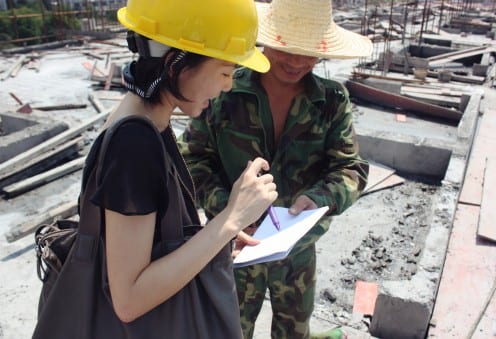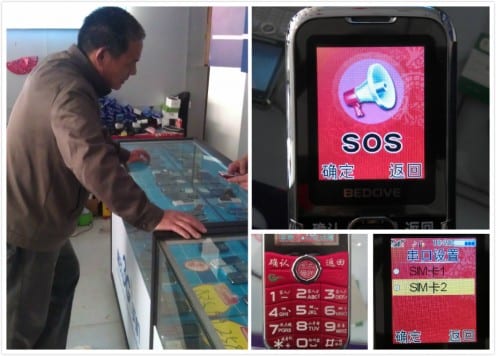Pin down the questions
By Xin Yuan Wang, on 5 September 2014
“You should know that the majority of PhD students feel some regret that they didn’t ask enough questions when they came back from the field.”
Danny advised so when we walked past a beautiful bamboo forest last year in October when he came to visit my field site.
At that time, after five-months of fieldwork I was frustrated about the situation that on the one hand, I felt as if I was mining hard on poor ground- there was nothing (no longer) new under the sun! On the other hand, I somehow felt it’s very awkward to ask ‘formal’ questions to the informants who treat me as a friend and I didn’t want to lose the relaxed atmosphere which I believe allows people to show the ‘true self’.
“Well, I see, but I still need some time to figure out HOW” I curled my lip and said.
It is really not easy to ask questions, even though the pre-fieldwork project meeting prepared well HOW to do this. Now, at the last phase of my fieldwork, when I look back and ask myself whether I feel any regrets about ‘asking questions’ during my fieldwork, I think the answer is NO, but with several footnotes.
First, useful questions do not necessarilyhave to be asked in a interview-like formal way or even with a question mark. My strategy is to follow people’s organic conversation flow and ‘harness’ the topic by relevant detailed inquiries or directional claim. That means most of the time my inquiries are impromptu. However, such improvisation is not as random as some laid back chic-chat among friends, it has to point towards the impact of social media. In practice, asking questions in a contextual way to address a research question is a mind-taxing and thought-racing process.
For instance, a factory worker informant of mine used to complain about her boyfriend (who is now her husband) in front of me, in such a situation, as a friend, I am supposed to be a compassionate ally who shares the same bitter hatred, rather than a ‘keep-one’s-nose-clean’ researcher who only takes interest in the phenomenon of ‘men keeping ex-girlfriends’ photos on social media’. I had to control my academic inclinations and insert my ‘questions’ patiently among her unrestricted criticism. As a result my questions output is like:
- “Oh gosh, how come? that’s totally outrageous, I just can’t believe it. but..hey you are great, how can you know his password? my boyfriend never told me his!”
- “Really?! so…which means he knew you looked at these photos? I don’t get it, what’s wrong with men? why do they think we can accept those ex- bitches…with a big smile?! I just don’t get it!”
- “Relax, you are strong, and I hope he will learn a lesson. By the way, did you give him any warning or at least a hint about this? ”
Framing questions in this way allows people to relate to the topic and express their own opinions. Look at the contrast to more direct research questions:
- Do you have your partner’s social media password, if so, could you tell me why and how do you get it?
- Will you remove your ex partner’s photos on social media profile? if so why? and why do you think some people keep their ex partner’s photos on social media?
- How do you deal with your partner’s ex-partner’s photos on social media?
Furthermore, all my roundabout inquiries are actually aiming to put pieces together of a bigger puzzle, which is the relationship between intimacy and social media usage. Nevertheless, I am not suggesting that such theatrical questioning can be applied in every case- it works only when a researcher has a relatively comprehensive knowledge of his/her informant as well as the circumstance during the conversation.
The funny thing is after just one month when I came back to the same informant and tried to go through some more interview-like questions she appeared slightly uncomfortable and confused about my question with regards to the intimacy and the usage of social media, and asked me why I was interested in those ‘useless’ things and what for. Clearly she forget that’s the reason I was in my field site and I was a researcher which I had told her one-year ago. Her attitude is understandable as for people who have limited education (like many of her fellow workers in the factory she is a middle-school drop-out) and living experience with academic research, words like ‘research’, ‘questionnaire’, ‘interview’, etc are more often than not very alien and sometimes even horrific. Thus it is safe to say the way to ask questions is as important as, if not more, the questions per se.
Secondly, at the closing phase of my field site I started to ‘push the boundary’ and pin down some questions I did not want to ask for the reasons I just mentioned above. The efforts were not in vain. Even though my informants appeared unsurprisingly uncomfortable and couldn’t give me a articulate answer in many cases. They still gave me some valuable information I couldn’t have gotten just by chatting with them, such as do they visit pornographic websites or describe their social media usage situation in the past five years.
Meanwhile, I spent almost one month in Shanghai to do comparative study among urban and rural (or rural migrant) population. Jingwen Fan, a Shanghai-based artist and media researcher, worked with me to conduct interviews among Shanghainese people. Given that we didn’t have enough time to carry out proper anthropological participant-observation, which I was doing among rural migrants in my field site, our interviews targeted personal friends and relatives of Jingwen Fan and I, with whom we have established strong mutual trust and understanding.
The interviews have been ongoing for more than a month and most of the interviews were filmed with consent. We have a list of 24 questions for the interviews (I will post the list of the questions in my next blog posting), which according to my one-year ‘questioning’ experience will lead to some active interaction and valuable data. So far, the interviews went very well even though I was slightly worried about what Margaret Mead said, ‘What people say, what people do, and what they say they do are entirely different things’.
We appreciate that most of all of our informants trust us a great deal and actively interact with us by showing us their social media profiles and sharing with us their personal stories without hesitation. And on top of it, the people we interviewed not only expressed themselves very well but also discussed different issues with us passionately. Some of them started an answer by saying “You know what, actually I thought about exactly the same question recently and I also discussed it with my friends…” More often than not, a filmed interview took around three hours.
It is safe to say the difference between the urban and rural population’s performance in formal interviews is mainly due to the difference in educational background and living experience. The average education level among factory workers/ rural migrants in my field site is below middle school, and the average among Shanghai-based informants is university. Given the huge information consumption on a daily basis and the diversity of urban life, the urban population appeared much more confident, open-minded and articulate in talking about the society and themselves. Thus, after conducting the study among different groups of people in China for almost 15 months, I am ready to say that the point of ‘pin down the question’ is not only about ‘asking enough questions’ as Danny advised, but also about ‘asking tailored questions for different informants’
 Close
Close







